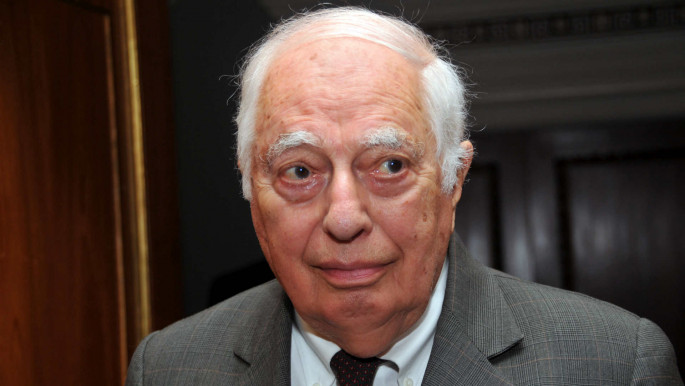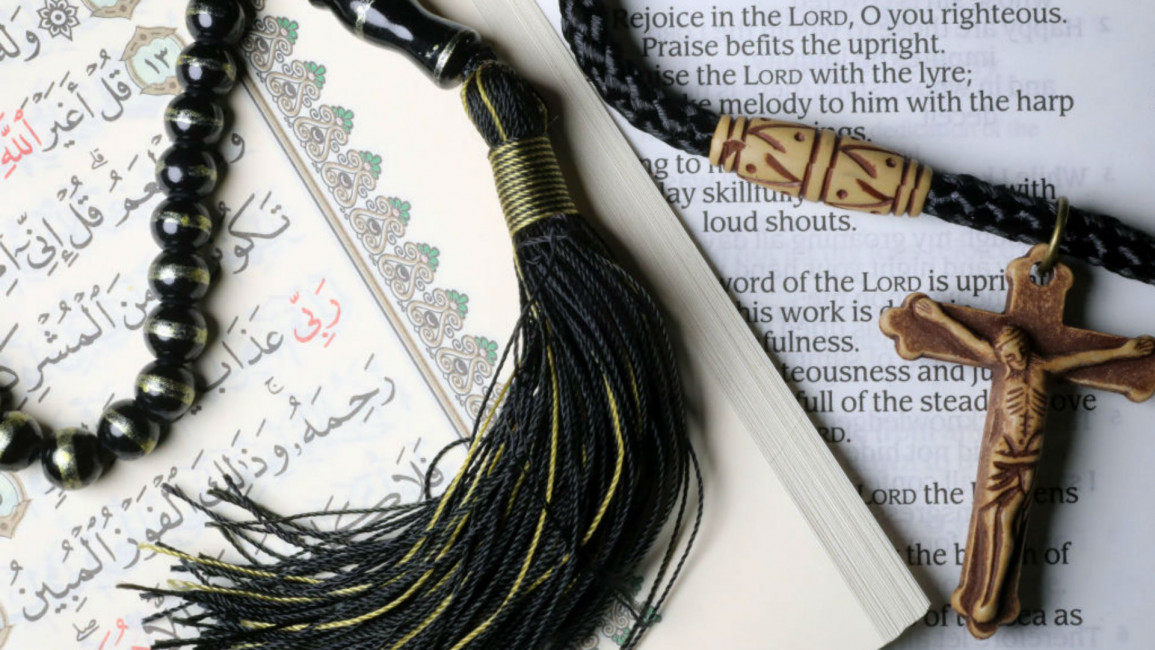Bernard Lewis and the clash of civilisations that never was
He died last weekend, just shy of his 102nd birthday, as the post-Ottoman Middle East order nears its complete collapse.
Although some of Lewis' early academic work was groundbreaking, such as his research into medieval Islamic guilds and the insights he gleaned from the Ottoman archives, it rapidly descended into politicised polemics, which ultimately proved extremely destructive to the Middle East.
"For the past several years Lewis has been engaged in preaching scholarship and practising politics," Edward Said, the author of the groundbreaking study Orientalism, wrote in one of his regular heated exchanges with Lewis, back in 1982. "It is of course quite natural for scholars to have political views and even to impart those views to their students and colleagues in an honest manner. Lewis is guilty of no such balance or discipline."
Lewis was the orientalist of choice for America's neo-conservative establishment and "his wisdom is sought daily by policymakers, diplomats, fellow academics, and the news media," in the words of former US Vice President Dick Cheney. Lewis is credited, alongside Samuel Huntington, with providing the intellectual framework for the 2003 invasion of Iraq.
One of Lewis' most damaging theories was that of the "clash of civilisations".
Although the term is most commonly associated with Huntington, Bernard Lewis used it earlier, and somewhat differently. While Huntington focused on perceived conflicts along the fault lines between half a dozen or so civilisations, Bernard Lewis' theory focused on the alleged centuries-old clash between Islam and the West (formerly known as Christendom).
Twitter Post
|
"It should by now be clear that we are facing a mood and a movement far transcending the level of issues and policies and the governments that pursue them," Lewis wrote in 1990, in what has proved to be one of the most influential essays of recent decades.
"This is no less than a clash of civilisations - the perhaps irrational but surely historic reaction of an ancient rival against our Judeo-Christian heritage, our secular present, and the worldwide expansion of both."
Given, then, that two influential public intellectuals alleged that we are in the throes of a clash of civilisations, is there any evidence to back up their theory?
Yes, there is… but only if you are ideologically inclined - like neo-cons, Christian and Islamic fundamentalists, and modern-day jihadis - to believe in such a clash, and pick and choose the evidence to support your thesis, while ignoring other inconvenient facts and realities.
In fact, though the term is relatively new, the notion that Christendom and Islam are age-old and irreconcilable rivals has an ancient pedigree. Examples include the historical notions of jihads and crusades, not to mention the idea of 'civilisation versus barbarism' espoused by dominant power and influential voices on both sides throughout the centuries.
But as I examine in a chapter dedicated to this crucial question in my new book, this clash exists mainly in the fevered imagination of the fanatic or the skilled political leader, and does not stand up to sustained political or historical scrutiny.
At this point, I should point out that conflicts are extremely complex issues, which are usually poorly understood even by those involved in them, that cannot be reduced to any single root cause.
That said, religious identity and culture, in my analysis, have played a remarkably minor role in the interactions between Islam (the Middle East) and Christendom (the West), both today and historically.
 |
The conflicts we are witnessing today are not so much a clash between civilisations, as a crash of civilisation |  |
This is underlined, in my view, by what I call the clash within civilisations (not to mention the clashes within individual societies), the conflicts which have plagued both sides and often posed a greater existential threat than the external enemy. This is exemplified by the two world wars and the current wildfire tearing through the Middle East.
It is also exemplified by the oft surreal cross-civilisational alliances that emerge. If civilisations clash over values, then the largely decades-old cosy relationship between the regressive Gulf monarchies and Britain then the United States should not exist, yet what I call the oiligarchy shows no sign of losing its potency, even under the stewardship of the Islamophobic Donald Trump.
And these alliances are scarcely new.
Protestant England had a long-standing alliance with the Ottomans against Catholic Spain. Caliph Harun al-Rashid and the Holy Roman Emperor Charlemagne were involved a robust, multi-generational coalition against their mutual foes, the Byzantines and Umayyads. Going even further back, the conquest of Iberia by Muslim forces would not have occurred without the encouragement and aid of the very Christian Julian of Septem (Ceuta).
 |
|
| Lewis was a favoured scholar among members of the George W. Bush administration in the lead up to the 2003 invasion of Iraq [Getty] |
Over and beyond all this, there is what I call the mash of civilisations, through which Islam and Christendom have so influenced one another, and been influenced by the same precursors, including ancient Greek, Egyptian and Mesopotamian influences, that it is impossible to separate them into two distinct civilisations.
The conflicts we are witnessing today are not so much a clash between civilisations, as a crash of civilisation.
By this, I do not mean the collapse of civilisation and the end of technologically advanced human society, but rather the more mundane and periodic crumbling of the dominant political, economic and social orders, as they become unsustainable, imploding and exploding under the weight of their contradictions.
It is far easier to blame monolithic metaphysical forces for our problems than to examine the actual socio-economic and geopolitical fault lines at play, because that would require changes few are willing or courageous enough to make.
But continuing to ignore the painful realities in favour of comforting illusions and delusions will lead to serious misdiagnosis of the situation, and the prescribed medication, rather than offering a cure will threaten the very survival of the patient.
Khaled Diab is a journalist and writer who is currently based in Tunisia. He is the author of two books: Islam for the Politically Incorrect (2017) and Intimate Enemies (2014).
Follow him on Twitter: @DiabolicalIdea
Opinions expressed in this article remain those of the author and do not necessarily represent those of The New Arab, its editorial board or staff.



